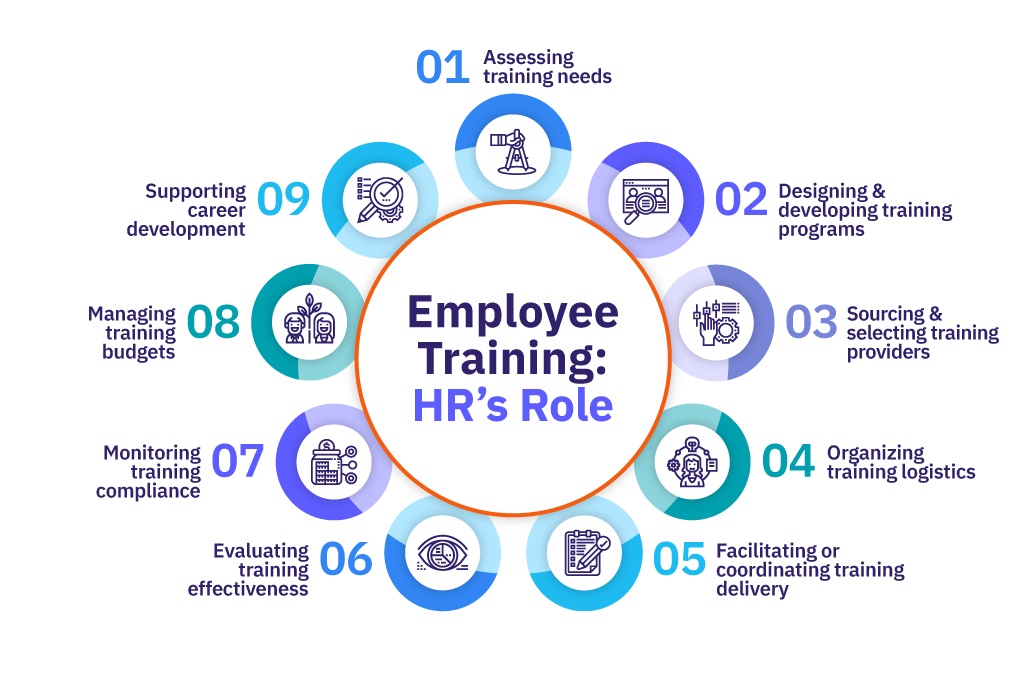The Transformative Influence of Comprehensive Staff Training on Organizational Success
In the contemporary business landscape, where adaptability and innovation are paramount, the impact of comprehensive staff training on organizational success cannot be overstated. Organizations that recognize the strategic value of investing in the development of their workforce often find themselves not only weathering industry changes but thriving in the face of adversity. This article explores […]

employee training hr role
In the contemporary business landscape, where adaptability and innovation are paramount, the impact of comprehensive staff training on organizational success cannot be overstated. Organizations that recognize the strategic value of investing in the development of their workforce often find themselves not only weathering industry changes but thriving in the face of adversity. This article explores the multifaceted ways in which comprehensive staff training shapes and propels organizational success.
Building a Competent Workforce
At the core of organizational success lies a competent and skilled workforce. Comprehensive staff training is the cornerstone for building and refining the capabilities of employees across various levels and functions. Whether it’s embracing new technologies, refining communication skills, or honing leadership abilities, ongoing training ensures that employees are equipped with the knowledge and tools necessary to excel in their roles. A competent workforce is not only more efficient but also contributes to the creation of a positive work culture where individuals are confident in their abilities, fostering a collaborative and high-performing environment.
Enhancing Employee Engagement and Retention
Employee engagement is a vital ingredient in the recipe for organizational success. Staff training is a clear demonstration of an organization’s commitment to the professional growth of its employees. When individuals feel supported in their career development, they are more likely to be engaged in their roles. High levels of engagement, in turn, contribute to increased job satisfaction and organizational loyalty. Employees who perceive their employer as invested in their success are more likely to stay with the organization, reducing turnover costs and creating a stable and motivated workforce.
Navigating Change with Agility
In an era where change is constant, organizational success hinges on the ability to navigate uncertainties with agility. Comprehensive staff training ensures that employees are not only well-versed in their current roles but also prepared to adapt to evolving circumstances. Whether it’s the implementation of new technologies or shifts in market dynamics, a well-trained workforce is more resilient and capable of steering the organization through change. Training programs that emphasize adaptability cultivate a culture where employees view change as an opportunity for growth rather than a source of uncertainty, positioning the organization for long-term success.
Fostering a Culture of Innovation
Innovation is a driving force behind organizational growth and success. Comprehensive staff training acts as a catalyst for fostering a culture of innovation within an organization. Training programs that encourage critical thinking, problem-solving, and creative exploration empower employees to approach challenges with fresh perspectives. Exposure to new ideas and methodologies through training not only enhances employees’ individual capacity to innovate but also contributes to a collective mindset of continuous improvement. An innovative culture is a competitive advantage, allowing organizations to stay ahead of the curve and respond proactively to industry trends.
Measurable Impact on Organizational Performance
The ultimate litmus test for the impact of comprehensive staff training is its measurable influence on organizational performance. Enhanced knowledge, increased employee engagement, adaptability to change, and a culture of innovation collectively contribute to improved organizational outcomes. From heightened productivity to superior customer satisfaction, the positive effects of ongoing training reverberate across various facets of the organization. Moreover, organizations that invest in the continuous development of their workforce often experience improved financial performance, as the value derived from a skilled and motivated team extends to the overall success of the business.
Conclusion
In conclusion, the impact of comprehensive staff training on organizational success extends far beyond the traditional view of training as a compliance necessity. It emerges as a strategic investment that pays dividends in the form of a competent workforce, heightened employee engagement, adaptability in the face of change, a culture of innovation, and ultimately, improved organizational performance.
